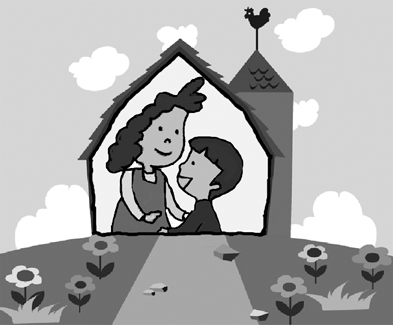
?
"Yellow Handkerchief," aired by KBS1, MBC drama "Still in Dreams?," and SBS"s "To You" describe the conflicts caused by the hojuje. The heroines of the first two TV dramas live under similar situations. Ja-yeong, the heroine of "Yellow Handkerchief," and Mun-kyeong of "Still in Dreams?" were abandoned by their lovers, who sought to climb the social ladder by marrying into rich families. Despite being deserted, both give birth to a child and live independent lives as career women. Their old lovers, however, return to demand paternal rights to take away their children, leaving these two women with no legal rights to stop their children"s biological fathers under the current hojuje system.
Kim Jane (Yonsei University, 3) said that through watching "Yellow Handkerchief," she learned about the hojuje in more detail, and thinks that the show broadened her view on matters regarding the hojuje. "Before the show aired, I only had a vague idea about hojuje," said Kim. "I was shocked to find out how legally vulnerable single mothers were in our society. The fact that the government actually fosters patriarchy through legal institutions goes far beyond absurdity."
There are many reasons why women"s rights groups are fearlessly trying to eradicate this century-long "tradition."
First of all, according to hojuje, a married woman must list her name on her husband"s census registry. Feminists claim that this policy perpetuates the thinking that men are the masters, and women their subordinates. They argue that having a child registered on their father"s registry and taking on his surname infringes on the parents" equality. Also, a child born out of wedlock can be registered on the father"s census without the consent of the wife. A single mother has basically no rights over her child when its biological father claims registry rights to the child.
Secondly, feminists argue that the hojuje encourages the abortion of female fetuses, and thus creates a serious imbalance in population in terms of gender, generated from a thinking that only boys can be the future head of the family. Family leadership descends from father to son and grandson, leaving aside daughter, wife, mother and daughter-in-law. A man is always given seniority over a woman, regardless of his age. Moreover, an illegitimate son has a higher status over a legitimate daughter.
More importantly, the hojuje victimizes the children of divorcees, remarried, or unmarried couples. Children from a divorced family are registered on the father"s census, even when the mother has custody. Transactions involving a child"s passport, health insurance and bank account fall outside the divorced mother"s control. If a divorced woman remarries, she must obtain her ex-husband"s consent to register her child to her new husband"s census registry. Even so, this child"s surname and location of family origin(bonjeok) follows the biological father"s. A child may feel disgraced among peers when his or her last name is different from the stepfather"s. Children of unmarried women may take on their mother"s last name and place of origin only if the father is unknown.
Lastly, this system reveals whether a parent is divorce or remarried, which activists see as an invasion of privacy. Yoo Ji-un of Korea Women"s Hotline comments that citizens have no choice but to watch helplessly one"s family records being publicized against one"s will, "Since all personal affairs are filed based on the family unit, such details are included in all official transcripts issued."
Opposing the women"s groups is a group of people led by Confucian scholars, the Yurims. They assert that the abolition of hojuje would cause the destruction of the family unit. According to them, hojuje is the foundation of Korea"s intellectual heritage, an established set of social morals and customs not found in Western society. "Nullification of hojuje, which is the backbone of our traditional family order, will not only cause great financial loss in recreating all the documents, but will also bring chaos to our society," claims Ku Sang-jin, President of the Alliance for the Korean Orthodox Family Institution. They insist that its abolition will lead to a higher divorce rate; fathers"s rights will vanish and men will become increasingly isolated in society. "Trying to take away a sound tradition from a majority of happy people just for a minority group does not seem to be rational. We can make some adjustments, one at a time, but not uproot the entire system," added Ku.
Women"s rights groups counter these arguments by contending that abolishing hojuje will by no means lead to a spike in the divorce rate. A patriarchal system, they claim, can only deepen conflict between couples and encroach on modern family life. Instead of hojuje system, women"s groups have proposed several alternatives to the status quo.
Among them, "one-person, one-family registration system" has most often been discussed. It requires that each person is regarded as a legal individual, and can list the names of one"s parents, spouse and children. Women"s groups largely support this approach, but the cost of carrying out a 48-million person census registry would carry a huge price tag. The Minister of the Ministry of Gender Equality, Jie Wun-hee, has expressed her preference for this system on because this system "has been discussed at a governmental level already."
Gender equality sounds like a logical concept, easy to articulate and implement. In reality, however, from a male perspective, it can be viewed as a frontal assault on the powerful fortress of masculinity. In a patriarchal society, men are used to controlling the power and cannot imagine the ramifications of a society run as a male-female partnership. Although change seems to be imperative, because change undermines the security that upholds the foundation of our daily lives, it is faced with heavy opposition. What women need to realize is that change will take place gradually. It requires a patient, steadfast faith in what they believe in. In the meantime, we need to examine the hojuje system with cool-headed objectivity.
arielle@ewha.ac.kr

